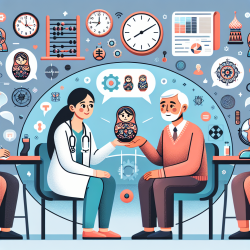Understanding the Clinical Implications of Herbal Supplements
Herbal supplements have become a staple in many households across the United States, often seen as a natural alternative to conventional medicine. However, the perception that these supplements are inherently safe due to their natural origins is a misconception that can lead to serious health risks. A recent comprehensive review titled Clinical Implications of Herbal Supplements in Conventional Medical Practice: A US Perspective highlights the potential dangers associated with these products and offers insights into how practitioners can better manage their use in clinical settings.
The Rising Popularity of Herbal Supplements
In recent years, the use of herbal supplements has seen a significant increase, with many individuals turning to these products for their purported benefits in areas such as weight loss, immunity boosting, and mental health. Despite their popularity, these supplements are not regulated by the FDA in the same way as conventional drugs, leading to potential issues with purity, potency, and safety.
Potential Health Risks
The review highlights several health risks associated with herbal supplements, including:
- Misbranded toxic ingredients and contaminants
- Adverse herb-drug interactions (HDI) with conventional medications
- Deranged lab results and allergic reactions
- Genotoxicity, carcinogenicity, and organ damage
These risks are particularly concerning for high-risk groups such as children, the elderly, pregnant and breastfeeding women, and immunocompromised patients.
Role of Practitioners
Practitioners play a crucial role in mitigating the health risks associated with herbal supplements. The review suggests several strategies for practitioners:
- Encourage patients to disclose their use of herbal supplements through a non-judgmental approach.
- Employ HDI screening tools to identify potential interactions with prescribed medications.
- Report adverse reactions to the FDA to contribute to a better understanding of these products' safety profiles.
Education and Regulation
To improve the safety and efficacy of herbal supplements in clinical practice, the review calls for formal training of physicians, a standardized pharmacovigilance system, and stricter regulation of the herbal industry. More scientific studies are needed to establish the safety and efficacy of these products.
Conclusion
Herbal supplements offer potential benefits but also pose significant risks that must be carefully managed. By staying informed and proactive, practitioners can help ensure the safe use of these products in their patients' healthcare regimens.
To read the original research paper, please follow this link: Clinical Implications of Herbal Supplements in Conventional Medical Practice: A US Perspective.










